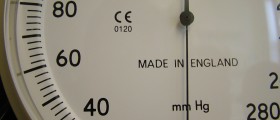
Ramipril tablets belong to the group of ACE inhibitors, and thus they are mostly used for the treatment of certain heart-related conditions, such as high blood pressure (med. hypertension), and congestive heart failure. They can be used for prevention, or decrease of the risk of heart attack, stroke, and other serious conditions which are the result of either blood vessel problems or heart problems. It works by blocking the enzyme which normally affects blood vessels to narrow, so instead they remain relaxed, allowing blood pressure to lower, and at the same time helping the heart to pump the blood with the less efforts.
Uses
Even though this medicine is intended for the treatment of a great number of heart conditions, it should be noticed that there are certain groups of patients which should not use it, such as the ones who were treated with ACE inhibitors earlier, and have a history of angioedema. On the other side, people with certain conditions of liver and kidneys, aortic stenosis, diabetes, as well as the ones who are about to have a surgery, are to inform their doctor about such conditions prior to the use of Ramipril tablets, because the risk of infections might be increased, as well as their safety. The same goes for nursing and pregnant women, because it is still not proven if ramipril can be passed through the breast milk to the baby, and if it can affect the fetus. It is not advisable to use certain other medicines such as nonsteroidal anti-inflammatory drugs, lithium, products containing potassium, and even some diuretics, because drug interactions are very likely to occur, and they may result in a number of side effects, some of which even might be life threatening.
Side Effects
As for the most frequent side effects and contraindications to the use of Rampiril tablets, it should be mentioned that they are very rare, and that they have been experienced and reported in less than 5 % of the cases. Among them are dizziness, weakness of the body, diarrhea, constipation, jaundice, ringing in the ears, and headache, and if any of them occur, there is no need to stop taking the medicine, because they tend to disappear after a while. A bit more serious side effect, and a bit more frequent as well is cough, which has been reported in approximately 10 % of cases, and it is, along with erectile dysfunction, a side effect which does require from a patient to address to the doctor and stop taking this medicine. People who have recently had a heart attack may experience very low blood pressure, pain in the chest, nausea and vomiting, vertigo or cough, but the fact that less than 1 % of such patients has reported any of these adverse effects implies that such cases are extremely rare.













-Uses%2C-Side-Effects-And-Risks_f_280x120.jpg)



Your thoughts on this
Loading...